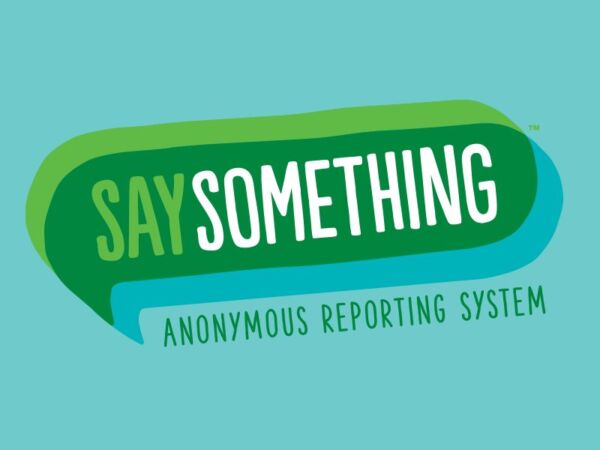
Governing Board of Athenian Academy
The Governing Board exists and is dedicated to help ensure Athenian Academy is run smoothly in every capacity. The Board establishes, maintains and has regular meetings on governing that allow for an ethical and compliant performance across the board. The Board works regularly with School Management to delegate work and interacts with the general public during meetings to answer questions and provide insight on operations.
The Governing Board meets every last Monday of the month.
Board Members
Role of the Board
Conflicts and Conflict of Interest
Conflicts shall be resolved with the people with which it was created. Board members will commit to resolving conflict directly with each other or with the appropriate staff member and not share the conflict with anyone outside of the conflict, including, but not limited to other parents, other staff members or the media.
Board members shall exemplify integrity, honesty and respect. A dedication and commitment to the vision of Athenian Academy and the charter school movement shall be top priority for any board member. Any board member finding himself or herself involved in an unresolvable conflict shall put the vision of the school first and step down from the board.
Written Policy: The Board has an established written policy on avoiding conflicts of interest.
Loans: Athenian Academy is a nonprofit corporation and may not lend money to a board director or the board director’s family members.
Corporate Opportunity: Directors of business organizations are under a fiduciary obligation not to divert a corporate business opportunity for their personal gain. A board director of a charter school that is a nonprofit corporation is also subject to this duty. This duty means that the board may not engage in or benefit from a business opportunity that is available to and suitable for the charter school unless the charter school decides not to engage in the business opportunity and conflicts of interest procedures are followed.
Compliance with Governing Documents: The Board has a duty to follow the Athenian Academy Charter School’s governing documents (articles of incorporation and bylaws), to carry out the charter school’s mission and to assure that funds are used for lawful purposes. Also, the Board must comply with other state and federal laws that relate to the charter school and the way in which it conducts its operations.
State and Federal Statutes: The Board should be familiar with many state and federal statutes and laws relating to charter schools. Board directors should see to it that their charter school’s status with state and federal agencies is protected and that no actions are being taken that would put this status in jeopardy.
Filing Requirements: The Board must comply with deadlines for taxation, for filing with the Attorney General, for registering with the Secretary of State’s Office, for making social security payments, for income tax withholding.
Governing Documents: The Board is familiar with their charter school’s governing documents and should follow the provisions of those documents. The Board ensures proper notice is given for meetings, that regular meetings are held, that board directors are properly appointed and that the charter school’s mission is being accomplished.
Board Meetings
The Board will meet every month and have at least two public meetings per school year within the Sponsoring District. The meetings will be noticed, open, and accessible to the public, and attendees will be provided an opportunity to receive information and provide input regarding the charter school’s operations. The appointed representative and charter school principal or director, or his or her equivalent, will be physically present at each meeting.
Annual Meeting
The annual meeting of the Board shall be held on August I of each year, unless the President, or the Board by resolution, provide for a different time and place for the holding of such annual meetings. All meetings of the Board of Members and its committees are subject to the “Sunshine Law” Chapter 286, Florida Statutes.
Special Meetings
Audience Participation
Relationship with the School Leader
Distinction between governance and management. The decision-making model reflects a clear distinction between governance decision-making and management decision-making. The Board focuses on matters of governance and delegates’ administration and management to the School Leader who in turn delegates to other staff.
- The Board hires, supervises, compensates, and (if necessary) terminates the School Leader
- Board members will not question any decision made by the School Leader in any public arena. If a director questions a decision, he or she shall immediately take that concern or disagreement to the administrator in a confidential and diplomatic format. Likewise, the School Leader shall agree to the same commitment. Respect for each other shall remain constant.
- While at the school, board members shall be mindful of the different roles they play: parent, volunteer, board member, etc. A board member will not use their position of authority while acting in their parent or volunteer roles. Directors shall foster good relationships with the administrator and staff on a personal level. With humility, each board member will serve the best interests of the school.
Board members shall remember that stepping out of their advisory/board capacity and attempting to run the school as an administrator will always cause problems.
- The vision and mission statement of The Athenian Academy Charter School will serve to guide and direct the Board. The goal to continually improve, maintain integrity, serve Athenian families and ensure academic success for our students shall take precedence in all situations.
Governing Board Code of Ethics
- Will not hold any employment or contractual relationship with a business or agency which is subject to the regulation of or is doing business with the school. F.S. 1002.33(26) (a)-(b); F.S.
112.313(7)(a) (exception for collective bargaining). - Will not hold any employment or contractual relationship that will create a continuing or frequently recurring conflict between private interests and the performance of public duties or that would impede the full and faithful discharge of your public duties. F.S. 1002.33(26) (a)-(b); F.S. 112.313(7)(a).
- Will not disclose or use information not available to members of the public and gained because of your official position, except for information relating exclusively to governmental practices, for your personal gain or benefit or the benefit of another person. F.S.1002.33(26) (a)-(b); F.S. 112.313(8).
- Will not solicit or accept anything of value including a gift, loan, reward, promise of future employment, favor or service based upon any understanding that your vote, official action, or judgment will be influenced thereby. F.S. 1002.33(26) (a)-(b); F.S. 112.313(2).
- Will not accept and do not allow your spouse or minor child to accept any compensation, payment, or thing of value when you know, or with the exercise of reasonable care, should know, that it was given to you to influence a vote or other action in which you are expected to participate. F.S. 1002.33(26) (a)-(b); F.S. 112.313(4).
- Will not corruptly use or attempt to use your position or any property or resource which may be within your trust, or perform your official duties to secure a special privilege, benefit, or exemption for yourself or others. F.S. 1002.33(26) (a)- (b); F.S. 112.313(6).
- The Governing Board may not include: – a school employee or spouse or – charter management company employee or spouse. F.S. 1002.33(26) (c)
- Will not, either directly or indirectly, purchase, rent or lease any realty, goods or services for your own agency from any business entity of which you or your spouse or child is an officer, partner, director or proprietor or has a material interest. F.S. 1002.33(26) (a)-(b); F.S. 112.313(3).
- Will not rent, lease, or sell any realty, or services to your own agency. F.S. 1002.33(26) (a)-(b); F.S. 112.313(3).
- Will not appoint, employ, promote or advance or advocate for appointment, employment, promotion or advancement, in or to a position in the agency in which the official is serving or over which the official exercises jurisdiction or control any individual who is a relative of the public official.
- Will not be appointed, employed, promoted, or advanced in or to a position in an agency if such appointment, employment, promotion, or advancement has been advocated by a public official, serving in or exercising jurisdiction or control over the agency, who is a relative of the individual or if such appointment, employment, promotion, or advancement is made by a collegial body of which a relative of the individual is a member. (Relatives include husband/wife, parents, parents-in-law, step parents, children, step children, siblings, step siblings, uncle/aunt, first cousins, and nephews/nieces). F.S. 112.3135(2)(a); CEO 06-13
Florida Whistleblower Act
Extends protection to five categories of employees including those who:
- Disclose information on their own initiative in a written and signed complaint
- Are requested to participate in an investigation, hearing or other inquiry conducted by any agency or federal government entity
- Refuse to participate in any adverse action prohibited by the act



